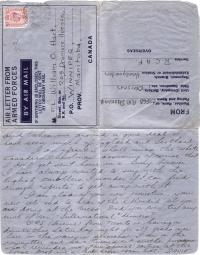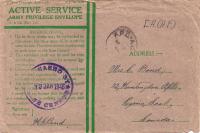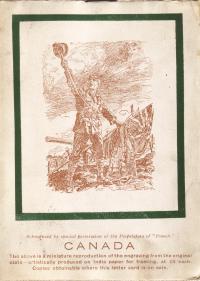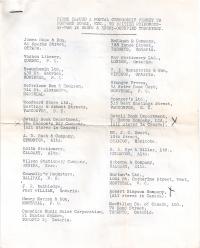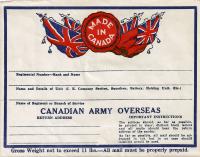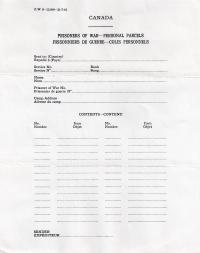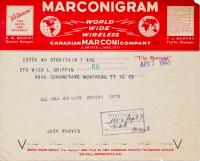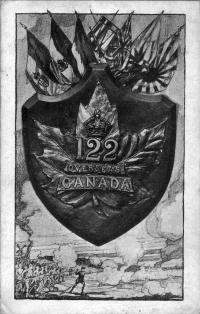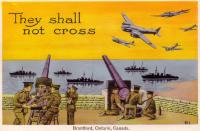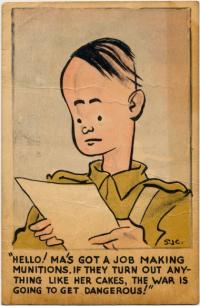Correspondence
An air letter from overseas
Air letters such as this one were distributed to servicemen and women in Britain, and were given priority in cargo space. Each person was allowed to send four air letters per month.
For more private communications
All letters written by soldiers were normally censored by their own officers, but they could request green Privilege (or Honour) Envelopes. These were not censored by their officers but by postal authorities in the rear areas, and allowed men to write of sensitive personal matters that they might not want their officers to know about.
Views of Shorncliffe camp
A New Brunswick soldier sent this folder home to his family in 1916, to show them what his temporary home, a tented camp in southern England, looked like.
Books behind barbed wire
Canadians could send books to their loved ones in enemy prison camps, but only through companies that had a postal censorship permit to handle such shipments.
Getting parcels to the troops
To ensure efficient delivery of mail to units overseas, Canadians were encouraged to use standard address labels, and to ensure that packages were within the weight limit of eleven pounds.
Parcels for prisoners of war
To reduce delays in shipment, all parcels destined for Canadian POWs in camps in Germany had to be accompanied by a declaration of their contents.
"All well and safe"
A common method of wireless trans-Atlantic correspondence was radio telegraphy. Canadian servicemen sent messages home via the Canadian Marconi Company through Canadian Pacific telegram.
Military badges as postcard art
Battalion badges were an important element of a unit's identity during the First World War, and proved to be a lucrative product for enterprising printers.
Brantford faces the enemy
This postcard, which uses a version of the First World War French slogan "Ils ne passeront pas", was printed for the city of Brantford, Ontario, probably in the summer of 1940, when the German armies posed a very real threat of crossing the English Channel.
"Ma's got a job making munitions"
The demands of the war required many women to take jobs in munitions and aircraft factories. This postcard reflects humorously on their transition from the home to the workplace.

